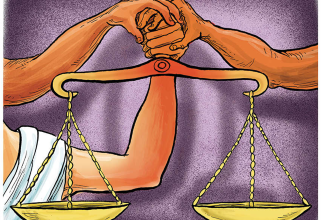Karachi Crises: Act Now, Save City

Karachi’s problems are not unsolvable; they simply require honest leadership, long-term planning, and continuous monitoring
- Public transport system, poor condition of roads and infrastructure, sanitation, street crimes and encroachments are some of the serious issues of Karachi
Shahreen Malik
Through your esteemed newspaper, I wish to draw the attention of the concerned authorities and the general public to the worsening problems of Karachi—the economic engine of Pakistan and a city that contributes the largest share to our national revenue. Despite its importance, Karachi continues to face severe challenges that affect the daily lives of millions of residents. If these issues are not resolved on a priority basis, the city’s social, economic, and environmental health will continue to deteriorate.
To begin with, one of the most alarming problems is the chaos in the transportation system. Karachi, with its ever-growing population, still relies on an outdated, insufficient, and unsafe transport network. A majority of citizens depend on old, damaged buses that are neither comfortable nor reliable. Although the introduction of the Green Line and other mass transit projects was appreciated, they remain far from meeting the needs of more than twenty million people. The lack of proper traffic management adds further misery, resulting in daily traffic jams, delays, and a great waste of time and fuel. There is an urgent need for a modern and integrated transport system like BRT extensions, improved railway services, and better pedestrian facilities.
Another deeply troubling issue is the poor condition of roads and infrastructure. After every monsoon, the city transforms into a landscape of potholes, broken streets, overflowing drains, and flooded neighborhoods. Despite repeated promises, Karachi never receives the consistent maintenance required for such a large metropolitan city. Damaged roads lead to accidents, slow economic activity, and increased repair costs for vehicle owners. Furthermore, poor drainage systems cause serious health risks due to stagnant water, which becomes a breeding ground for mosquitoes and diseases such as dengue and malaria.
The lack of cleanliness is yet another major concern. Karachi, unfortunately, has earned a reputation as one of the dirtiest large cities in the world. Garbage is piled up on streets, empty plots, and even outside residential areas. Solid waste management authorities often fail to collect and dispose of garbage timely and properly. In many localities, people are forced to burn waste, which further contributes to air pollution. A city that once prided itself on being the “City of Lights” now struggles with basic hygiene issues. Without an effective waste-collection system, recycling initiatives, and strict enforcement of cleanliness laws, the situation cannot improve.
Read: AI and Satellite Data Reveal Karachi’s Green Space Crisis
Water shortage is also a persistent crisis in Karachi. Despite being Pakistan’s largest city, Karachi does not receive enough water from its main sources. Millions of residents depend on tanker mafias, who charge high prices for supplying even basic quantities of water. In many areas, water contamination is equally worrying, as unsafe drinking water causes widespread illnesses. Authorities must take strong action to repair pipelines, eliminate illegal connections, and upgrade filtration plants so that citizens can receive clean and sufficient water.
Another issue that demands serious attention is the rising crime rate. Street crimes, theft, and robberies have become common in many parts of Karachi. The lack of effective policing, limited CCTV coverage, and slow investigation processes have caused public frustration and fear. People no longer feel safe walking on the streets or using their mobile phones in public. The government should strengthen policing, expand surveillance, and introduce community-based safety programs to restore peace in the city.
Lastly, the problem of encroachments has made public spaces almost disappear. Footpaths are occupied by vendors, illegal constructions block natural drains, and commercial activities are carried out in residential areas. This mismanagement not only creates congestion but also damages the city’s overall planning and beauty. Strict enforcement of building laws and regular anti-encroachment drives are essential to reclaim the city’s public spaces.
In conclusion, Karachi’s problems are not unsolvable; they simply require honest leadership, long-term planning, and continuous monitoring. The authorities must treat Karachi as a national priority, not a temporary political project. I request the government, civic bodies, and all stakeholders to take immediate and concrete steps to restore Karachi’s dignity and livability. Only then can the city truly fulfill its role as the backbone of Pakistan’s economy.
Read: Road Dangers in Karachi: A Growing Crisis
_________________
Shahreen Malik is resident of TBLC satellite town Rawalpindi




